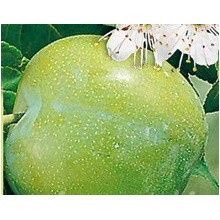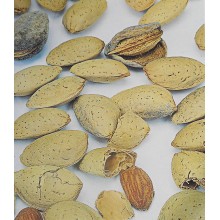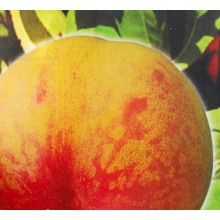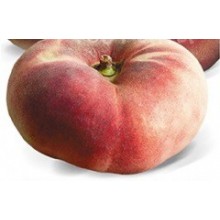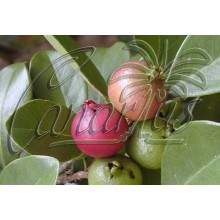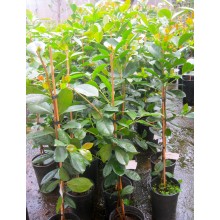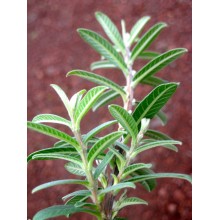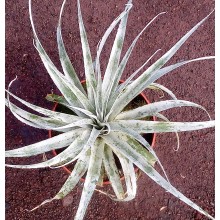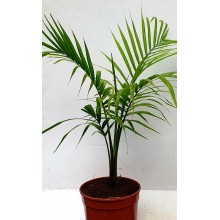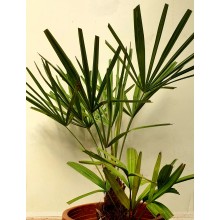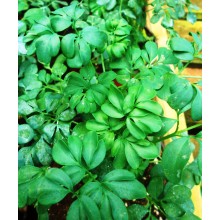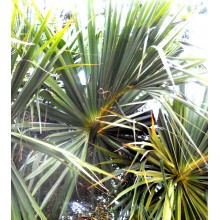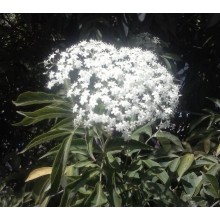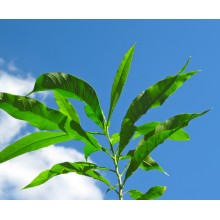Cold-Hardy Plants There are 309 products.

This is our selection of plants that can stand some cold. Some will only resist to cool weather and light frost, but some others will take hard frost in colder climates. They are all very different but they deserve to be tried because all these tropical-looking plants have non tropical requirements. They will surely thrive outdoors in coastal Mediterranean climates or in a mildly heated greenhouse where frost does not occur.
-
Prunus dulcis 'Desmayo largueta' - Hardy Almond
Prunus dulcis 'Desmayo largueta' - Hardy Almond
Widespread Spanish cultivar of Almond, with superior frost-resistance. It was selected in a cold area by Zaragoza by the priest who wanted to find an almond tree able to grow well in the area. Desmayo means Fainting and this is because the branches of the tree are exceptionally weeping, a bit like a willow. This doubtlessly helped the tree to resist frost.
42,00 € -
Prunus persica var. platycarpa 'Paraguayo' - Saturn Peach
Prunus persica var. platycarpa 'Paraguayo' - Saturn Peach
Saturn peaches are smaller and flatter than a regular peach. Their skin is yellow and red, and they are usually less fuzzy than ordinary peaches. Their flesh is also a lot firmer, sweeter and more fragrant than a regular peach. The inside of the peach is pale in appearance.
39,00 € -
Psidium cattleianum - Guayabo fresa, Strawberry Guava
Psidium cattleianum - Guayabo fresa, Strawberry Guava
1,5-3 m shrub, suitable for pot culture. Glossy leaves and round, ornamental flavourful fruits, often used in sorbets or sauces and drinks. Very rich in Vitamin C.Resistant to short frosts down to -5°C.
35,50 € -
Psidium cattleianum Yellow Form - Lemon Guava
Psidium cattleianum Yellow Form - Lemon Guava
A relative of the true guava with smaller fruits. It is 2-5 m tall, suitable for pots and can be pruned low. It takes frost to about -4 C, so it is suitable for Mediterranean gardens.
35,50 € -
Psidium sp. Dwarf Reunion
Psidium sp. Dwarf Reunion
This dwarf guava was originally brought from Reunion Island. It is a super dwarf guava with miniature leaves and small, good fruits. It is more a conversation peace than a real fruit tree, but it a nice choice for the fruit collector. It is possibly in the species Psidium guava.
44,00 € -
Puya harmsii- Large
Puya harmsii- Large
Beautiful large Puya with grey-white leaves with few spines, up to 1 m tall, forming clusters with age It bears showy inflorescences, 2 m tall, with blue-black flowers from purple-pink bracts. It is known from a few restricted location at high altitude in the provinces of Tucuman and Catamarca, in northwestern Argentina.
51,30 € -
Ravenea rivularis
Ravenea rivularis
Popular feather palm native to river borders of Southern Madagascar, easily grown in the Mediterranean.
53,00 € -
Rhapidophyllum hystrix - Specimen
Rhapidophyllum hystrix - Specimen
8 years old, branched. h= 80 cm - Son h= 35 cm. The needle palm is the cold-hardiest of all palms. It is a clumping, short fan palm, with fibrous trunks, armed with long dark spines. Leaves are dark green and glossy.
288,00 € -
Sabal yapa - Large
Sabal yapa - Large
h= 30-60 cm - Cont. 22 cm. Caribbean Sabal palm with grey-blue leaves with a bright cream-yellow costa. Juveniles have very wide segments, while adult palms have deeply split blades with thin segments. This palm can take short light frosts. It is a bit more hardy than the similar species Sabal mauritiiformis.
44,20 € -
Sansevieria parva
Sansevieria parva
NEW ! - Small rooted clump - "Parva" means "small"! Tiny stoloniferous species, eventually forming a carpet or filling ahanging basket. Native to cooler mountains of Rwanda, Uganda andKenya, it is probably the hardiest of the Sansevierias.
10,70 € -
Sapindus saponaria - Soap Tree
Sapindus saponaria - Soap Tree
The Soap Tree, Soapberry or 'jaboncillo' is is a tree native to the Americas and some Pacific Islands. The fruit occur in large pyramidal clusters at the ends of branches and it is very soapy. You can actually wash your hands by simply rubbing the fruits! It is very easy to grow, also in pots, and can easily take short, light frost so it is suitable for...
43,20 €
At the moment there are few products in this category Cold-Hardy Plants


















